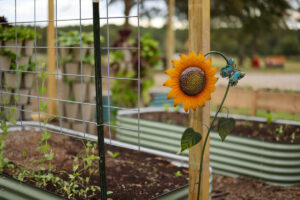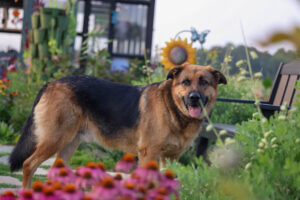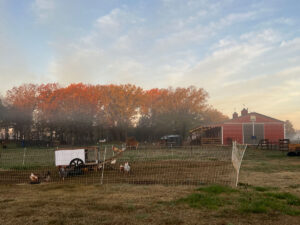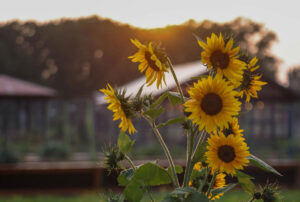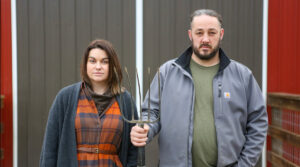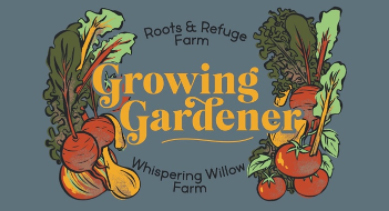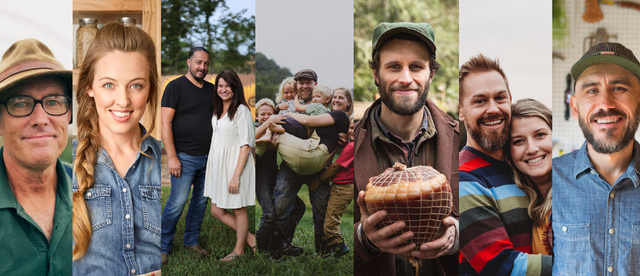Planning is a critical piece of successfully raising your own meat on a homestead. There is a lot to consider from choosing which animals to raise, to knowing how much feed it takes, to estimating your investment cost. Jeremiah and I wanted to create an informative resource about raising meat on the homestead to help you get started. We are sharing our journey through raising our own meat as a way of transparency and encouragement with honest opinions from real experiences.
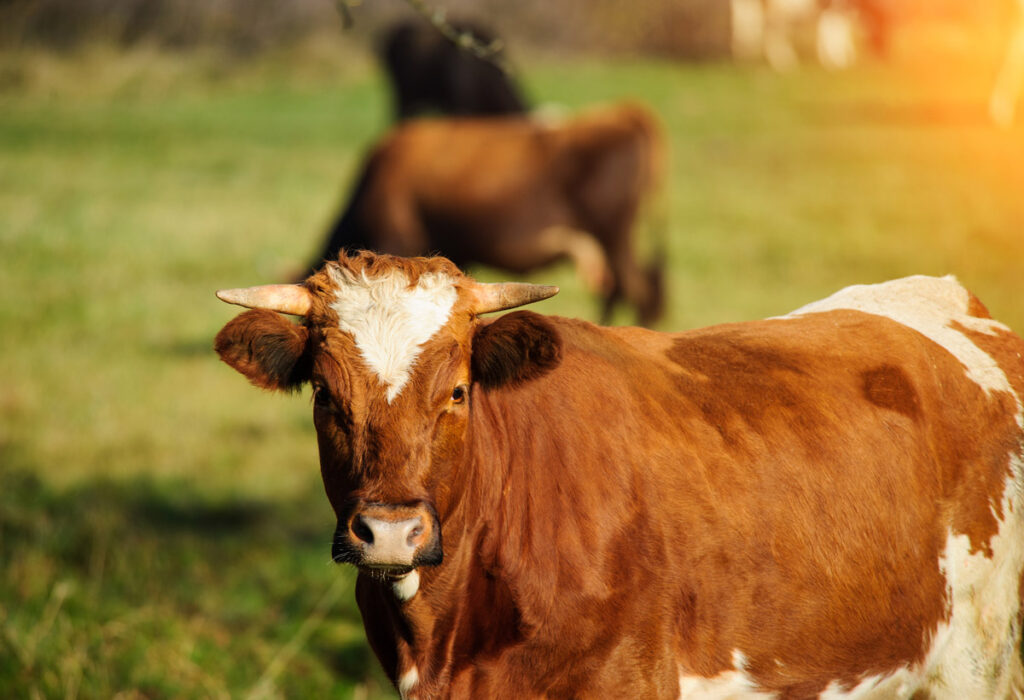
Much of the security of homesteading comes from knowing how to grow plants; so our recommendation: establish your garden and perennials first. For ideas about starting a new garden check out our posts on how to plan your garden.
Talking about starting a garden seems odd when this is a post talking about raising meat, but if you want the most bang for your buck, focus on the garden.
When people get into homesteading and self-sufficiency, they usually start thinking about raising their own meat because these tend to be pricier items at the grocery store. But you will save more money gardening than you will by raising your own meat. Gardening can also offset some of the cost of raising meat.
Truly, I believe in raising meat on the farm but don’t forsake the garden!
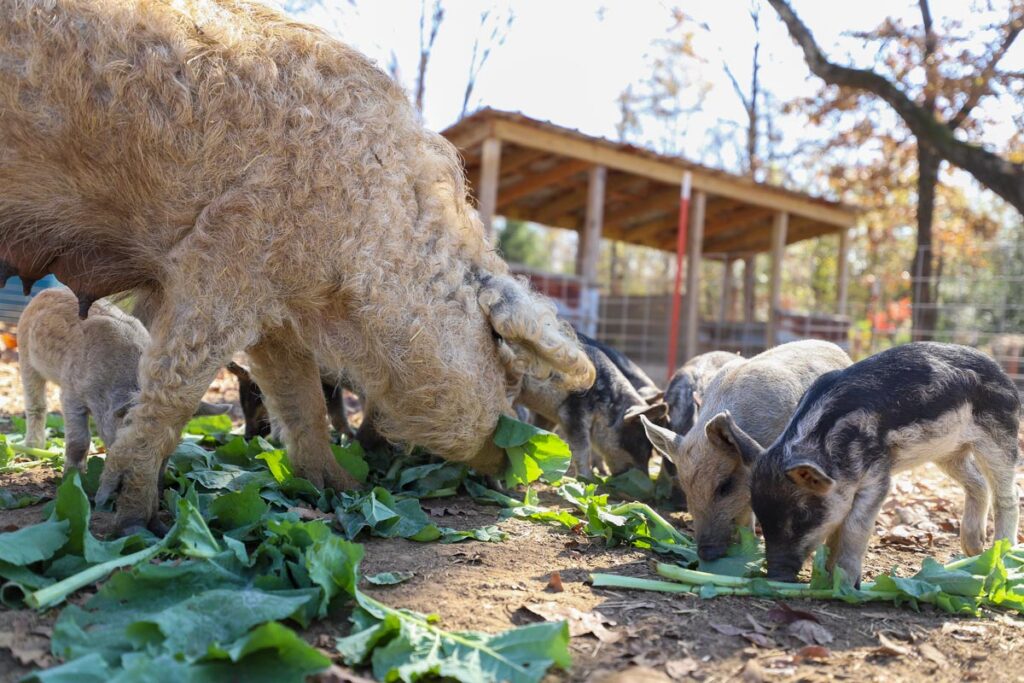
Why Raise Your Own Meat
We believe that a lot of the health conditions people experience today come from eating meat that was raised in horrific conditions. Although we grow a huge garden every year, we also don’t shy away from the fact that we eat meat.
If you haven’t researched the reality of the commercial meat industry, but continue to eat meat, it is your responsibility to become an informed consumer. If the animal is unhealthy, it can’t be healthy to eat it.
We take responsibility for that by ethically sourcing our meat. We believe that if we can’t look an animal in the face and acknowledge that it's living and dying to feed us, then we don’t need to be eating meat.
We are not doing anyone a service by disconnecting from the inevitable process that is necessary to consume meat. And so for us, it is a matter of making our appetite come into alignment with our convictions.
If you are going to eat meat, it's important that you take responsibility as well; whether you raise your own, or support farmers who are raising meat ethically and healthfully.
If you can't find a local farmer near you, we recommend buying from Butcher Box is an ethically sourced, healthy option. We still buy our seafood and other convenience items from them and stand behind their quality and sourcing methods.
Is It Cheaper To Raise Your Own Meat
You will probably not save money raising your own meat. The purchase price of your animals, feed costs, expenses of building and upkeeping fences and pens, vet bills, and processing fees all add up to the total cost of your meat.
If the only reason you want to raise your own meat is to save money over buying factory-raised, store-bought meat, you may be disappointed.
That doesn’t mean it isn’t a worthy investment. There is a bigger picture to the cost here. If low-quality meat is causing your family to have health problems, it may cost you more to eat store-bought meat in the long run.
On your homestead, you can produce your own quality grass-fed meat, chemical-free eggs from healthy chickens, and fresh raw milk.
With enough pasture land for grazing animals, you may be able to get to the point that raising your own meat is cost-effective.
There are several things you can do to bring your meat cost down: breeding your own animals instead of rebuying starters each year, processing your own meat instead of paying a butcher to do it, and growing some of your own animal feed. We feed a lot of garden scraps to our animals.
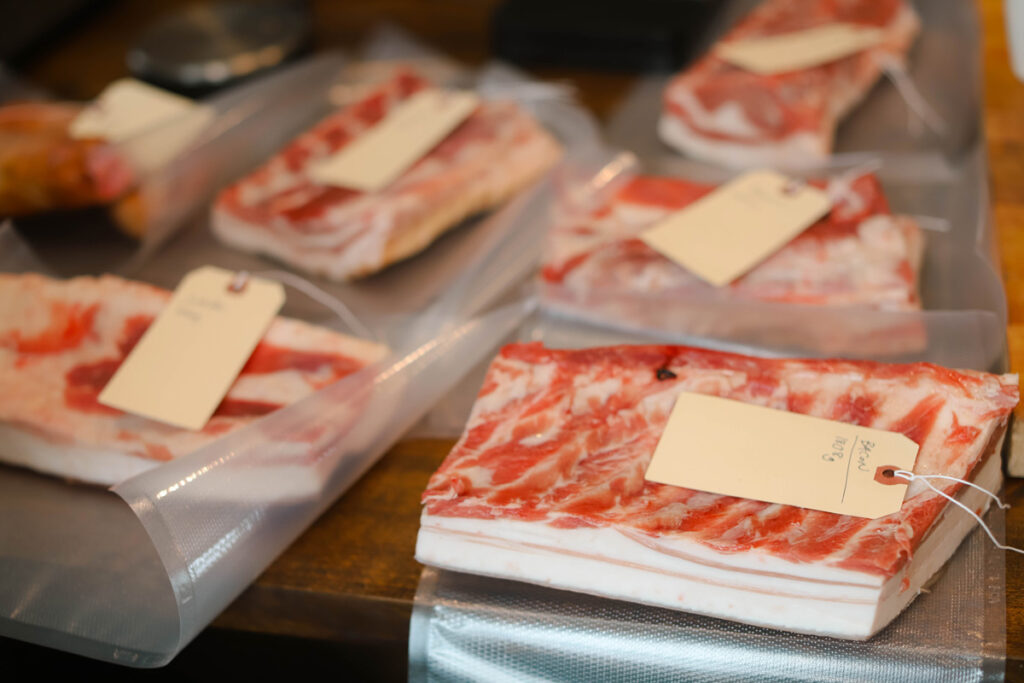
Find a Butcher for Meat Processing
Important Tip: if you cannot process meat yourself, you will need to use a butcher. Many butchers are booked out well into the next year! Call around and find a processing date, then work backwards from your butchering date to decide when to breed (or buy your starters). You don’t want to be stuck with an animal that you have no way to process!
What Is the Cost of Animal Feed
The cost of feed will vary greatly depending on the type of animal you raise and the quality of feed you purchase.
The length of time needed to grow a starter animal to maturity will vary depending on your breed. That's important to consider when calculating the cost of feed.
For instance, a commercial Hampshire starter pig will grow to around 250 pounds and be ready to process at 6 or 7 months old. That means you only have to feed it for about 5 months after purchasing.
A heritage Mangalitsa hog will take about 15 months to reach maturity which means it will be fed about 3 times as long.
Obviously, the quality of feed affects the price as well.
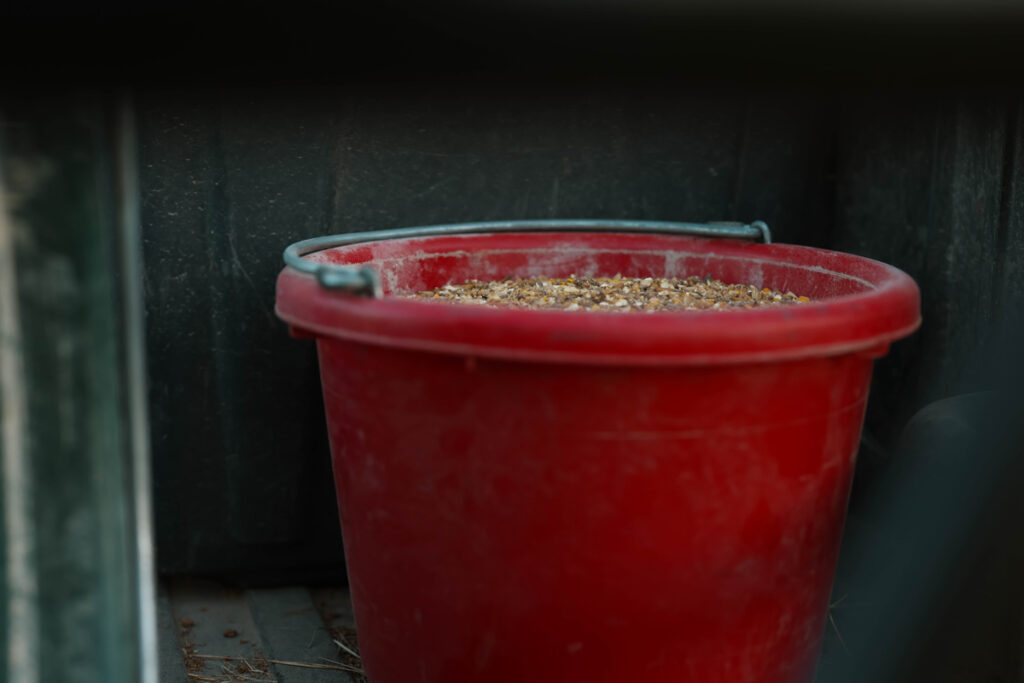
What Feed Should You Choose
Choosing quality animal feed is worth the investment. Remember this: if you go to the feed store and buy the cheapest feed (those are typically full of GMO corn and soy) that cheap quality feed will produce lower quality meat and directly affect your own health.
When we first started raising meat, I could buy a factory-farmed raised chicken from the store for around $4 a bird. This is no longer the case, but the cost of feed has gone up as well.
When we were on a budget and no longer wanted to eat store-bought meat, home grown chickens cost so much to raise that it was no longer affordable to eat meat at every meal. We ate a lot more bean-based meals! That time in our lives really taught our family the value of what we were consuming.
Over the years we've progressively moved toward completely non-GMO. It was a process that we took to the next step as we could afford it.
Our goal in raising meat on our farm is to have a closed-loop system, meaning that our animals are bred, born, raised, and processed right here on our farm. That is the most sustainable and ethical way.
I finally got to a place where I didn't feel condemnation about this process and you shouldn’t either. The important thing is producing healthier, ethically sourced meat. Even if you raise your own animals with conventional feed, it will still be much better and healthier than buying factory-farm raised animals that may have lived in their own feces, been sick, or never saw sunlight.
For specific information on what feed we use, the amounts we feed, how to store feed and more, check out the “scoop” on feeding our farm.
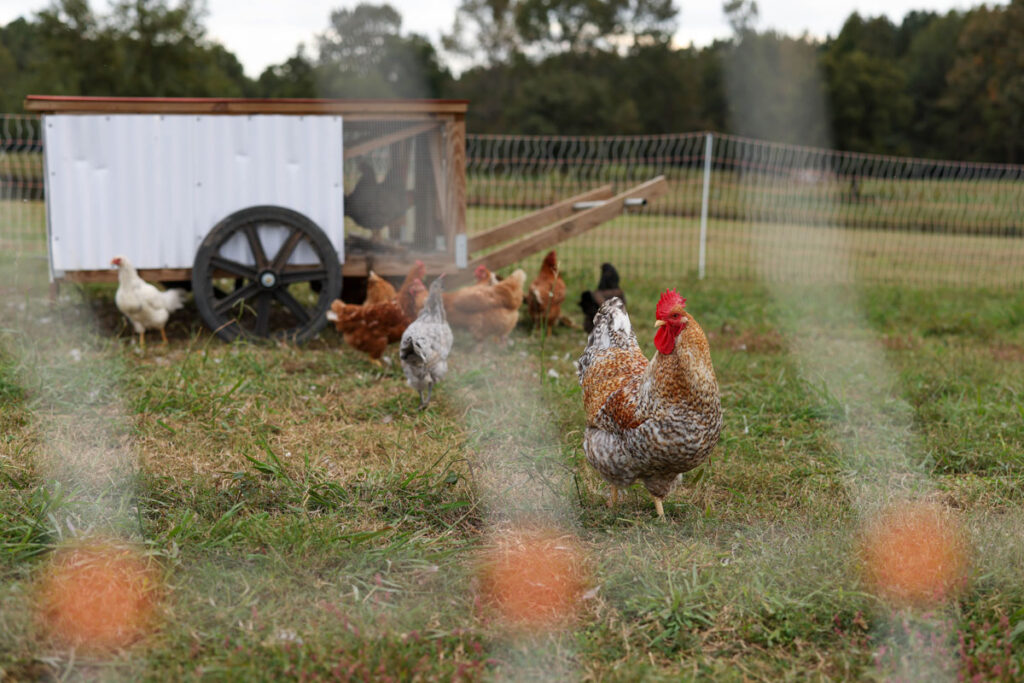
What Are the Best Animals to Raise For Meat
Laying hens are a great entry-level protein source for a homestead. You can expect most hens to lay an egg a day.
We also recommend raising meat chickens, ducks, turkeys, and pigs. If you have enough pasture, a cow is a great option.
A few years ago we worked out a trade for a grass-fed cow because in Arkansas we didn't have enough property to raise our own cow. We now have multiple dairy cows and are in the planning phase for raising our own beef cattle.
There are three animals that we don’t currently raise for meat, but others might so they're worth mentioning, and those are rabbits, goats and sheep.
Many people have a lot of success raising rabbits for a meat source and, as a bonus, rabbits are really quiet and don’t need a lot of space.
Goats and sheep are popular choices, for good reason too. They can be used for milk or for meat depending on the breed. You all know how much we love our goats for their milk!
Choosing which breeds of these animals to raise can be challenging. Here is more information about selecting the best breeds for your homestead.
Raising your own meat is a very worthy endeavor that makes you feel accomplished. We hope that you have success raising meat on your homestead too. And be sure to let us know your favorite heritage breeds in the comments below!
We bless you, until next time.


